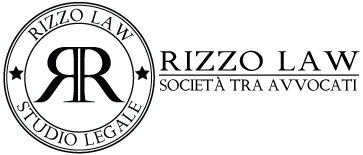Best Whistleblower & Qui Tam Lawyers in Italy
Share your needs with us, get contacted by law firms.
Free. Takes 2 min.
Or refine your search by selecting a city:
List of the best lawyers in Italy
About Whistleblower & Qui Tam Law in Italy:
Whistleblower and Qui Tam laws in Italy are designed to protect individuals who report illegal activities or wrongdoing within an organization. These laws aim to encourage transparency, integrity, and accountability in both the public and private sectors. Whistleblowers are individuals who disclose information that is in the public interest, while Qui Tam actions involve a private individual filing a lawsuit on behalf of the government to recover funds lost to fraud or misconduct.
Why You May Need a Lawyer:
You may need a lawyer in Whistleblower & Qui Tam cases in Italy if you have witnessed or have evidence of illegal activities within your organization and wish to report them while protecting your rights. A lawyer can help you navigate the complex legal processes, ensure your confidentiality, and advocate for your rights in case of retaliation or discrimination. Additionally, a lawyer can help you understand the legal implications of your actions and guide you on the best course of action to take.
Local Laws Overview:
In Italy, whistleblowers are encouraged to report illegal activities to the National Anti-Corruption Authority (ANAC) or other relevant authorities. Whistleblowers are protected from retaliation under Law No. 179/2017, which prohibits any form of retaliation or discrimination against whistleblowers. Qui Tam actions in Italy are governed by the Criminal Code and the Civil Code, which allow private individuals to file lawsuits on behalf of the government to recover funds lost to fraud or misconduct.
Frequently Asked Questions:
1. What protections do whistleblowers have in Italy?
Whistleblowers in Italy are protected from retaliation and discrimination under Law No. 179/2017. Employers are prohibited from taking any adverse actions against whistleblowers who report illegal activities in good faith.
2. Can I report misconduct anonymously in Italy?
Yes, whistleblowers in Italy can choose to report misconduct anonymously. However, providing your identity may strengthen the credibility of your report and improve the chances of a successful investigation.
3. What types of misconduct can be reported under Whistleblower & Qui Tam laws in Italy?
Whistleblowers in Italy can report a wide range of misconduct, including corruption, fraud, embezzlement, environmental violations, workplace harassment, and other illegal activities that harm the public interest.
4. How can I file a Qui Tam lawsuit in Italy?
In Italy, Qui Tam actions can be filed by private individuals on behalf of the government to recover funds lost to fraud or misconduct. To file a Qui Tam lawsuit, you will need to gather evidence of the fraud, hire a lawyer, and file a lawsuit in the appropriate court.
5. What are the potential outcomes of a Whistleblower or Qui Tam case in Italy?
If your whistleblower or Qui Tam case is successful, you may be entitled to financial rewards, protection from retaliation, and the satisfaction of knowing that you have helped expose wrongdoing and promote accountability.
Additional Resources:
For more information on Whistleblower & Qui Tam laws in Italy, you can contact the National Anti-Corruption Authority (ANAC) or consult with legal organizations such as the Italian Bar Association. These resources can provide you with guidance, support, and legal advice on how to proceed with your case.
Next Steps:
If you believe you have witnessed or have evidence of illegal activities in your organization and are considering blowing the whistle or filing a Qui Tam lawsuit in Italy, it is important to consult with a lawyer who specializes in whistleblower and Qui Tam cases. A lawyer can evaluate your case, protect your rights, and guide you through the legal process to ensure the best possible outcome for your situation.
Lawzana helps you find the best lawyers and law firms in Italy through a curated and pre-screened list of qualified legal professionals. Our platform offers rankings and detailed profiles of attorneys and law firms, allowing you to compare based on practice areas, including Whistleblower & Qui Tam, experience, and client feedback.
Each profile includes a description of the firm's areas of practice, client reviews, team members and partners, year of establishment, spoken languages, office locations, contact information, social media presence, and any published articles or resources. Most firms on our platform speak English and are experienced in both local and international legal matters.
Get a quote from top-rated law firms in Italy — quickly, securely, and without unnecessary hassle.
Disclaimer:
The information provided on this page is for general informational purposes only and does not constitute legal advice. While we strive to ensure the accuracy and relevance of the content, legal information may change over time, and interpretations of the law can vary. You should always consult with a qualified legal professional for advice specific to your situation.
We disclaim all liability for actions taken or not taken based on the content of this page. If you believe any information is incorrect or outdated, please contact us, and we will review and update it where appropriate.
Browse whistleblower & qui tam law firms by city in Italy
Refine your search by selecting a city.
















